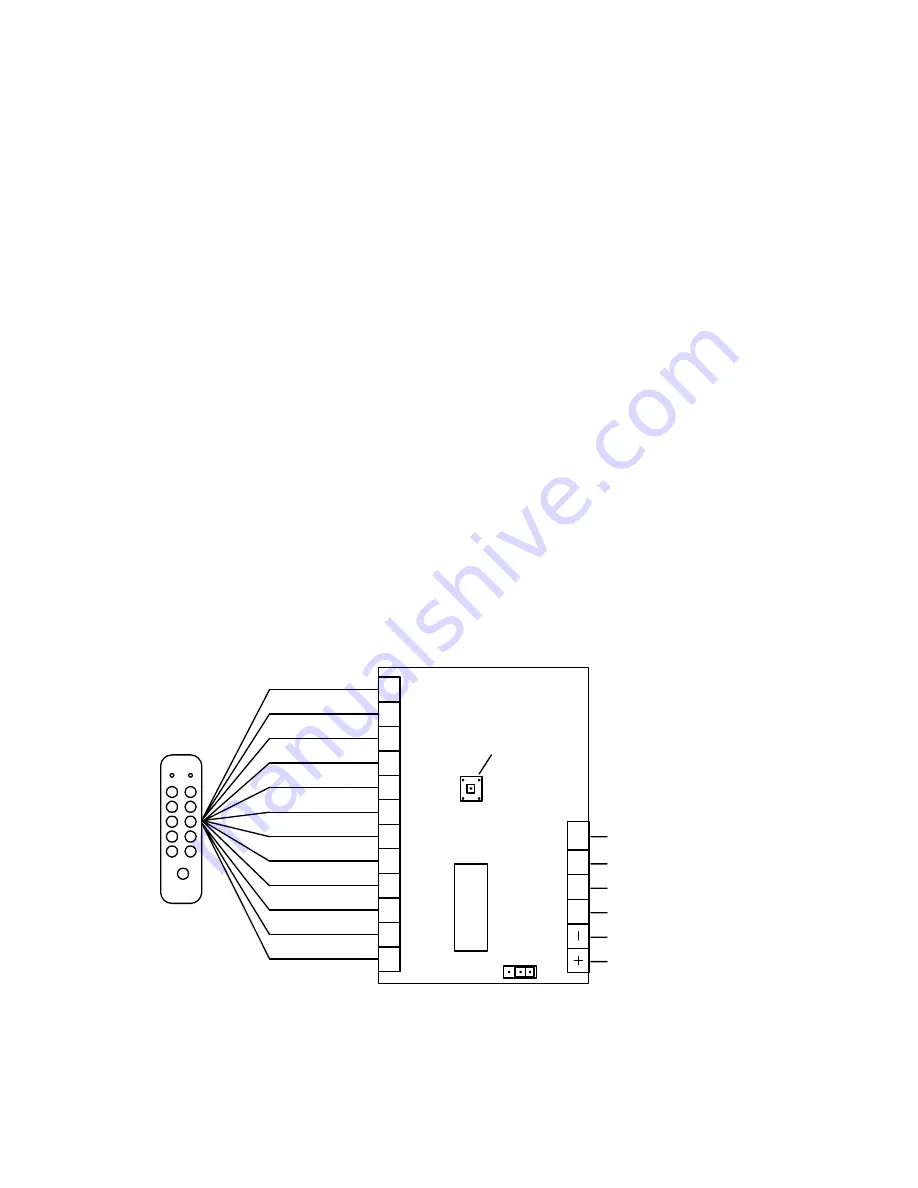
Rev. A.2, 1/04
Page-
2
rise to electronic noise problems in certain environments. It should therefore be avoided where
possible and in no case should cable length exceed
30 ft. (10 meters).
Cable entry
to the CPU board enclosure can be handled in one of two ways. There is a hole in
the bottom of the enclosure, the use of which creates the most attractive installation as the cable
is completely hidden. Alternately, there is a side knockout in the enclosure cover which permits
surface mounting of the cable.
The side knockout also permits a wiring technique which is
convenient when the CPU board enclosure is to be mounted in an awkward location such
as above a drop ceiling
. You can pop the board itself out of its snap track and make all your
connections with the board in your hands. The board is then re-snapped into the plastic trak.
The enclosure cover snaps on with the wires emerging from the side knockout. If you use this
technique,
avoid touching the components or rear pins on the board as much as possible
.
Static electricity can destroy the processor. Also when you
snap the board back
in its track,
make sure it’s securely done. Sometimes you need to squeeze the outer lips of the track to
insure that the board edges are really seated in the slot.
3. WIRING
3.1 POWER, DATA AND KEYPAD WIRING
Figure 2 shows the DK-26W CPU Board. You will make connections to the 18 terminals as
shown in the drawing and either leave the jumper block in the factory set position (connects pins
2 and 3) if you plan to power the DK-26W with 12 VDC or move the jumper to connect pins 1
and 2 if you will be using 5 VDC. Note that
operation at 12 volts
with the jumper block in the 5
volt position
can damage the unit
.
Note that
the DK-26W will not operate on AC power
. It will, however, accept
full wave
rectified DC power
(trans bridge rectifier)
when it is being powered by 12 VDC
.
When it is being powered by
5 VDC, the voltage must be regulated
(+/- 1/2 volt). Be sure to
observe polarity
when you power the DK-26W.
There are 12 color coded wires in the keypad cable. Refer to Figure 2 and connect each wire to
the indicated terminal on the CPU Board. No other connections may be made to these
terminals (except if two keypads are used with one CPU board).
The DK-26W will draw a maximum of
30 mA at 5 VDC or 12 VDC
.
The Weigand output terminals: Data 0 and Data 1 connect to the appropriate inputs of the
access control system. The
wire run maximum distance
for reliable operation depends on the
wire gauge. A guide line is 200 ft. for 22 gauge; 300 ft. for 20 gauge and 500 ft. for 18 gauge.
FIG. 2: OVERVIEW OF CPU BOARD
GRN
YEL
RED
BLU
WHT
BLK
GRY
BRN
BGE
ORG
P
NK
VIO
D0
D1
LED
X
MIT
GREEN
YELLOW
RED
BLUE
WHITE
BLACK
GRAY
BROWN
BEIGE
ORANGE
PINK
VIOLET
MI
CRO
-
PROCESSOR
FACILITY CODE
PROGRAM
BUTTON
TRANSMIT DATA
LED (FROM SYSTEM)
DATA 1
0 VDC (NEG)
+5 OR +12 VDC
DATA 0
1
3
2
JUMPER TO SET
VOLTAGE
FACTORY SET 2/3 = 12 V
CHANGE TO 1/2 FOR 5 V
















